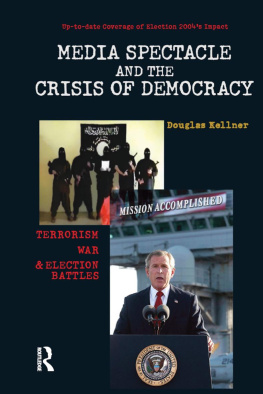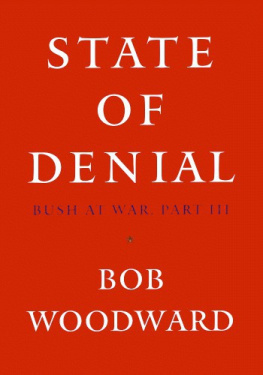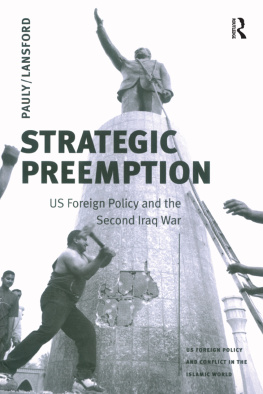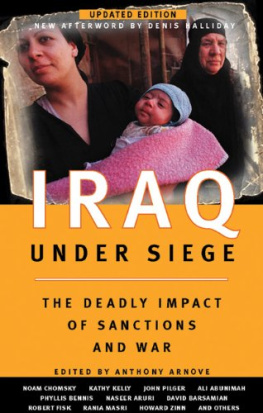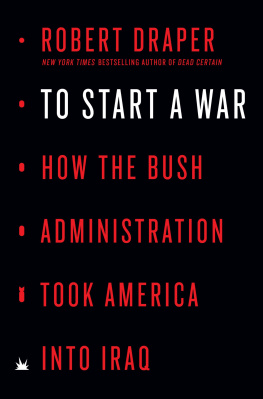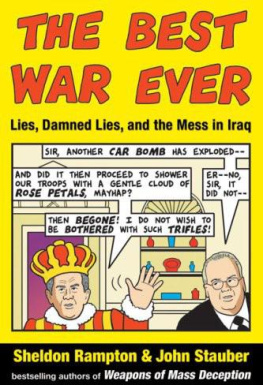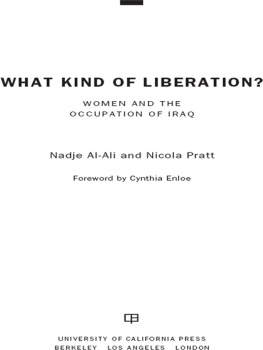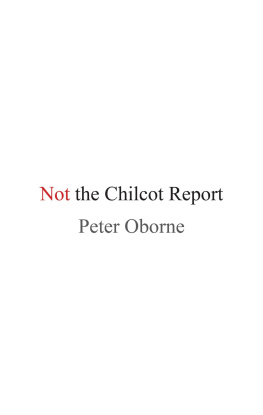George W Bush Administration Propaganda for an Invasion of Iraq
Hartenians history of George W Bush propaganda for an invasion of Iraq returns the administrations approach to its conceptual origins. Hartenian places evidence in the center of his analysis, showing that Rumsfelds the absence of evidence is not evidence of absence meant that no evidence was necessary to justify an invasion. The 9/11 attacks, indeed, changed everything for the Bush administration and in its aftermath the time for regime change in Iraq had simply come.
With no good evidence to support its fears, the administration was certain of a post-9/11-conceived Iraqal-Qaeda nexus, just as with no evidence except the absence of evidence it was certain of Iraqi mastery of denial and deception that hid Saddams evil activities. Resting on Cheneys 1% doctrine, administration certainty of the threat from Iraq required a US invasion.
The policy offices of Douglas Feith at the Pentagon, with the help of George Tenet at CIA, would generate a case of such fright and enormitythe mushroom cloudthat required administration action. Manipulating intelligence and ignoring the growing body of evidence undermining its case, the Bush administration invaded Iraq to bring about regime change.
Larry Hartenian is Emeritus Professor of Politics and History at Curry College. He has focused in recent years on contemporary history.
Routledge Advances in American History
13 Reagans Boys and the Children of the Greatest Generation
U.S. World War II Memory, 1984 and Beyond
Jonathan M. Bullinger
14 Perceptions of China and White House Decision-Making, 19411963
Spears of Promise, Shields of Truth
Adam S.R. Bartley
15 A Brief History of the Subordination of African Americans in the U.S.
Of Handcuffs and Bootstraps
Alexander Polikoff and Elizabeth Lassar
16 Education and the Racial Dynamics of Settler Colonialism in Early America
Georgia and South Carolina, ca. 1700ca. 1820
James ONeil Spady
17 The Overseers of Early American Slavery
Supervisors, Enslaved Labourers, and the Plantation Enterprise
Laura R. Sandy
18 An Unfamiliar America
Essays in American Studies
Edited by Ari Helo and Mikko Saikku
19 George W Bush Administration Propaganda for an Invasion of Iraq
The Absence of Evidence
Larry Hartenian
For more information about this series, please visit: https://www.routledge.com/Routledge-Advances-in-American-History/book-series/RAAH
First published 2021
by Routledge
52 Vanderbilt Avenue, New York, NY 10017
and by Routledge
2 Park Square, Milton Park, Abingdon, Oxon, OX14 4RN
Routledge is an imprint of the Taylor & Francis Group, an informa business
2021 Larry Hartenian
The right of Larry Hartenian to be identified as author of this work has been asserted by him in accordance with sections 77 and 78 of the Copyright, Designs and Patents Act 1988.
All rights reserved. No part of this book may be reprinted or reproduced or utilised in any form or by any electronic, mechanical, or other means, now known or hereafter invented, including photocopying and recording, or in any information storage or retrieval system, without permission in writing from the publishers.
Trademark notice: Product or corporate names may be trademarks or registered trademarks, and are used only for identification and explanation without intent to infringe.
Library of Congress Cataloging-in-Publication Data
Names: Hartenian, Lawrence Raymond, author.
Title: George W Bush administration propaganda for an invasion of Iraq : the absence of evidence / Larry Hartenian.
Description: New York, NY : Routledge, 2021. |
Series: Routledge advances in American history | Includes bibliographical references and index.
Identifiers: LCCN 2020051417 (print) | LCCN 2020051418 (ebook) | ISBN 9780367558840 (hardback) | ISBN 9781003095576 (ebook)
Subjects: LCSH: Iraq War, 20032011Causes. | Iraq War, 20032011Propaganda. | Bush, George W, (George Walker), 1946Political and social views. | United StatesPolitics and government20012009.
Classification: LCC DS79.76 .H3737 2021 (print) | LCC DS79.76 (ebook) | DDC 956.7044/38dc23
LC record available at https://lccn.loc.gov/2020051417
LC ebook record available at https://lccn.loc.gov/2020051418
ISBN: 978-0-367-55884-0 (hbk)
ISBN: 978-0-367-55885-7 (pbk)
ISBN: 978-1-003-09557-6 (ebk)
Typeset in Sabon
by codeMantra
To Patty
Part I
The Propaganda Build Up on Iraq in the First Year and One Half of the Bush Administration
The propaganda case made by the Bush administration to carry the United States to an invasion of Iraq was wide-ranging even as it focused on two primary issues: Iraqi possession of weapons of mass destruction and weapons of mass destruction programs, and the nexus, i.e., Iraq passing such weapons to a terrorist groupal-Qaedato be used against the United States. The Bush administration case against Iraq and the campaign to convince the US public and Congress of this case went through various phases. In the months between George W Bushs inauguration as president in January 2001 and the September 11, 2001 attacks, administration propaganda on Iraq was sporadic, though the framing of Saddam Hussein (not Iraq) was combative and consistent with what the public had been presented in previous years. Once the 9/11 attacks occurred, Bush administration public statements on Iraq became more belligerent even as the president announced that the United States would not attack Iraq in the first phase of the war on terror.
Features of this thinking and public treatment of Iraq in the first year of the Bush administration will be presented and discussed in this chapter along with insight into judgments of the intelligence community of the threat posed by Iraq, as well as how these judgments related to administration views. I will also present the articulation of the administration case for an invasion of Iraq as it was taking shape in 2001. Finally, the chapter will discuss the propagandistic role of the Iraqi National Congress (INC) in generating bogus intelligence. The INC will feed this propaganda-as-intelligence to a hungry media as well as to a soliciting Department of Defense and the Office of the Vice President.
While I will frequently discuss WMD* and Bush administrations statements about them, my analysis and discussion will consistently be more focused on the most deadly of these, the alleged Iraqi nuclear weapons program. As will be made clear, it was the nexus that drove administration fears and actions.
* I note here at the outset that while I use WMD as an acronym to represent weapons of mass destruction throughout this work, this is an unhappy decision. My problem with WMD is that in addition to denoting a category of chemical, biological and nuclear weapons (and sometimes ballistic missiles), it was consistently used by the administration as a propagandistic term. The administration used it to conflate the threat of nuclear weapons with the threat posed by chemical and biological weapons. Confirmation (even if mistaken) that Iraq had one type of WMD was confirmation that Iraq had WMD tout court. Thus, use of the term raised the specter that Iraq possessed nuclear weapons. The administration actively used this ambiguity to heighten fear. Whatever the case for Saddam Hussein, it was clear that for the administration, The jewel in the crown is nuclear. It is unfortunateand testament to the propagandistic success of the Bush administrationthat use of the acronym WMD when talking about the Saddam Hussein summons this specter. I use WMD because of its pervasive use by the administration, its universal currency at the time and its broad understanding since then.


